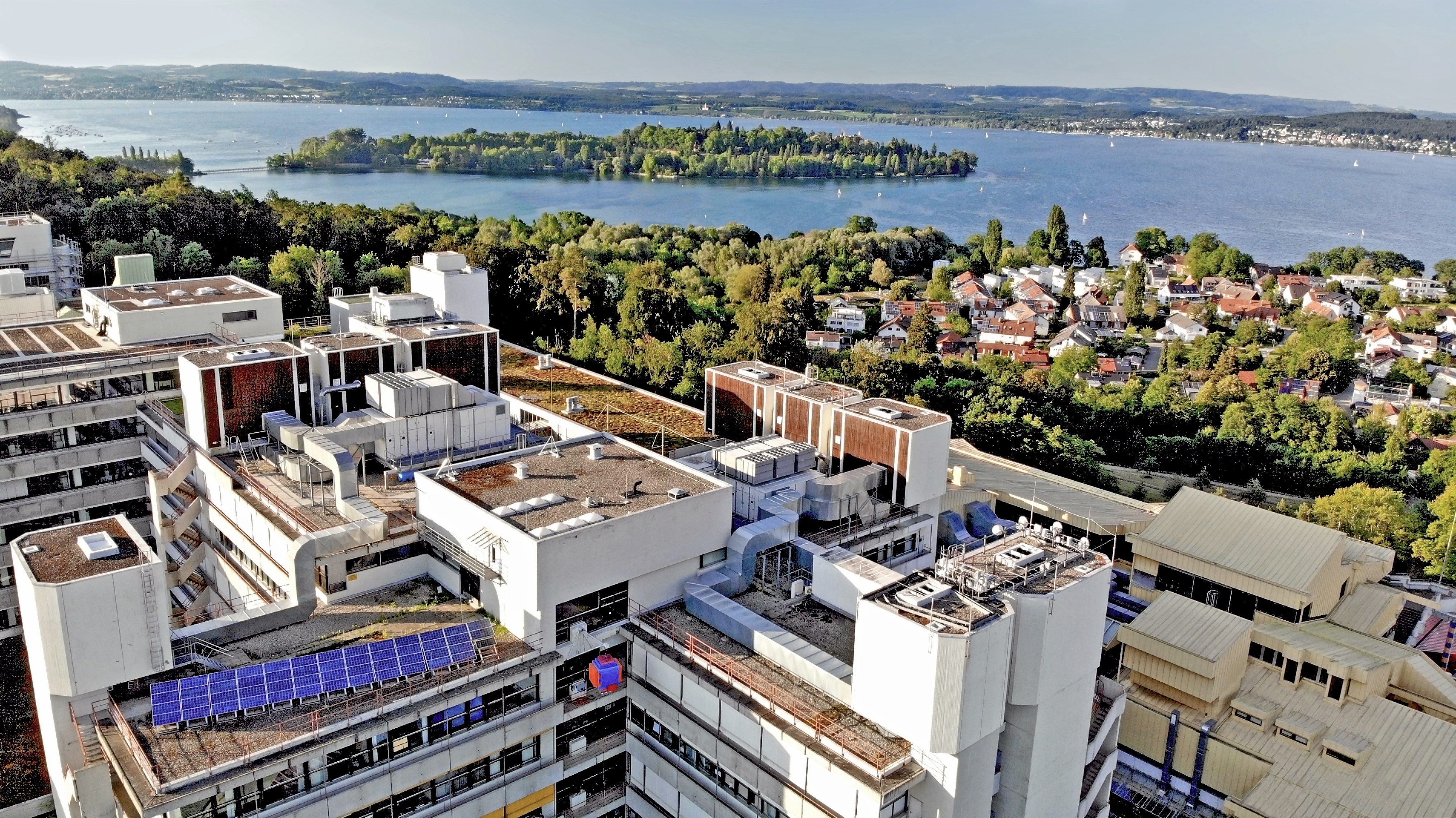
Top rankings in sustainability
Once more, the University of Konstanz is highly successful in the THE Impact Ranking that assesses the social influence of universities in the area of sustainable development. Compared to the previous year, Konstanz is now among the world’s top 100 in three categories.
Every year, the THE Impact Ranking by Times Higher Education (THE) compares how much universities worldwide contribute to the United Nation's 17 Sustainable Development Goals. The University of Konstanz has participated in the ranking since 2021 and competed in eight categories in the current round. For the sustainable development goals "Life on land", "Peace, justice and strong institutions" as well as "Partnerships for the goals", Konstanz placed among the top 100 internationally. In five other categories, the university is among the best 25 percent worldwide. The University of Konstanz’s overall ranking was among the top 300 of 1,591 participating universities and thus among the best 20 percent. In Germany, Konstanz shared the ranking group 2 to 3 with RWTH Aachen University in the overall rating of nine German universities.
"We are extremely pleased about our repeated very good performance in the THE Impact Ranking, and the current results are a renewed recognition of our broad institutional commitment to the topic of sustainability – whether in research and teaching or in the area of transfer," says Christine Peter, Vice Rector for Sustainability, Information and Communication Technology at the University of Konstanz.
Three times in the global top 100
Year-on-year, the University of Konstanz significantly improved its placement for sustainability goal 17 "Partnerships to achieve the goals": it climbed from ranking group 401 to 600 in 2022 to now place 70 worldwide out of 1,625 participating institutions. This category looks at the ways universities support the global sustainability goals through collaboration with other countries and institutions. The current top 100 ranking reflects, among other things, the participation of Konstanz researchers in global collaborative projects as well as their cross-disciplinary collaboration with NGOs, politics and industry on sustainability issues. Additional positive aspects are the collaboration in transnational university networks with a focus on sustainability, institutional self-commitments and an extensive range of information and education options on sustainability topics – both for the university's own students and the general public.
What is more, the University of Konstanz was able to maintain its previous positions in the global top 100 for the global sustainability goals 15 "Life on land" (place 57 out of 586 worldwide) and 16 "Peace, justice and strong institutions" (place 27 out of 910 worldwide). "Life on land" measures the contributions of universities to protecting and conserving land ecosystems and their biodiversity. At the University of Konstanz, research on this topic is conducted in particular within the research priority Collective Behaviour and the emerging field of research Biodiversity – Organismic Interactions - Global Change. By observing animal movements worldwide, for example, researchers at the Cluster of Excellence Centre for the Advanced Study of Collective Behaviour are investigating the consequences of global catastrophes for the animal world. Botanists at the University of Konstanz research the spreading mechanisms of invasive plant species and the resulting impact on global biodiversity.
The category "Peace, justice and strong institutions" measures how the universities' research, participation as advisers for governments and own policies promote peace and justice. In terms of research, the University of Konstanz's top international ranking reflects in particular the work in the research priorities Cultural Dynamics and Social Transformation as well as Inequality and Conflict, with research mainly originating in the cultural studies research centres and the Cluster of Excellence The Politics of Inequality at the University of Konstanz. Konstanz researchers are also extensively engaged as advisers for politics, in education programmes with and for government agencies, and the researchers provide neutral discussion platforms on sustainability-related topics for representatives from politics, industry and the general public.
Results well above average in five other categories
In addition to the top three positions, the University of Konstanz achieved placements in the top 25 percent in the five other categories in which it competed. These categories are: "Quality education", "Gender equality", "Reduced inequalities", "Climate Action" and "Life below water". The results show that the University of Konstanz is very well and broadly positioned in terms of sustainability.
About the THE Impact Ranking
The THE Impact Ranking has been conducted annually since 2019. In several categories, it assess universities against the United Nations’ Sustainable Development Goals (SDGs). In addition to strength in research, universities’ social commitment and implementation of sustainable institutional structures play a role in the ranking. All universities can decide which of the 17 sustainable development goals they would like to have assessed for the ranking. The overall ranking is calculated based on the three best-ranked sustainability areas at a university in addition to sustainable development goal number 17: "Partnerships for the goals".
Key facts:
- 2023 THE Impact Ranking on the social impact of universities in the areas covered by the United Nation’s 17 sustainable development goals
- In the overall ranking, the University of Konstanz is among the top 300 worldwide, and even reached three places in the top 100 for the sustainable development goals 15 ("Life on Land"), 16 ("Peace, justice and strong institutions") and 17 ("Partnerships for the goals").
- Of all German universities, Konstanz is in ranking group 2 to 3 in the overall rating.
- The University of Konstanz participated in eight categories of the ranking:
- Sustainable development goal 4: "Quality education"
- Sustainable development goal 5: "Gender equality"
- Sustainable development goal 10: "Reduced inequalities"
- Sustainable development goal 13: "Climate action"
- Sustainable development goal 14: "Life below water"
- Sustainable development goal 15: "Life on land"
- Sustainable development goal 16: "Peace, justice and strong institutions"
- Sustainable development goal 17: "Partnerships for the goals"
